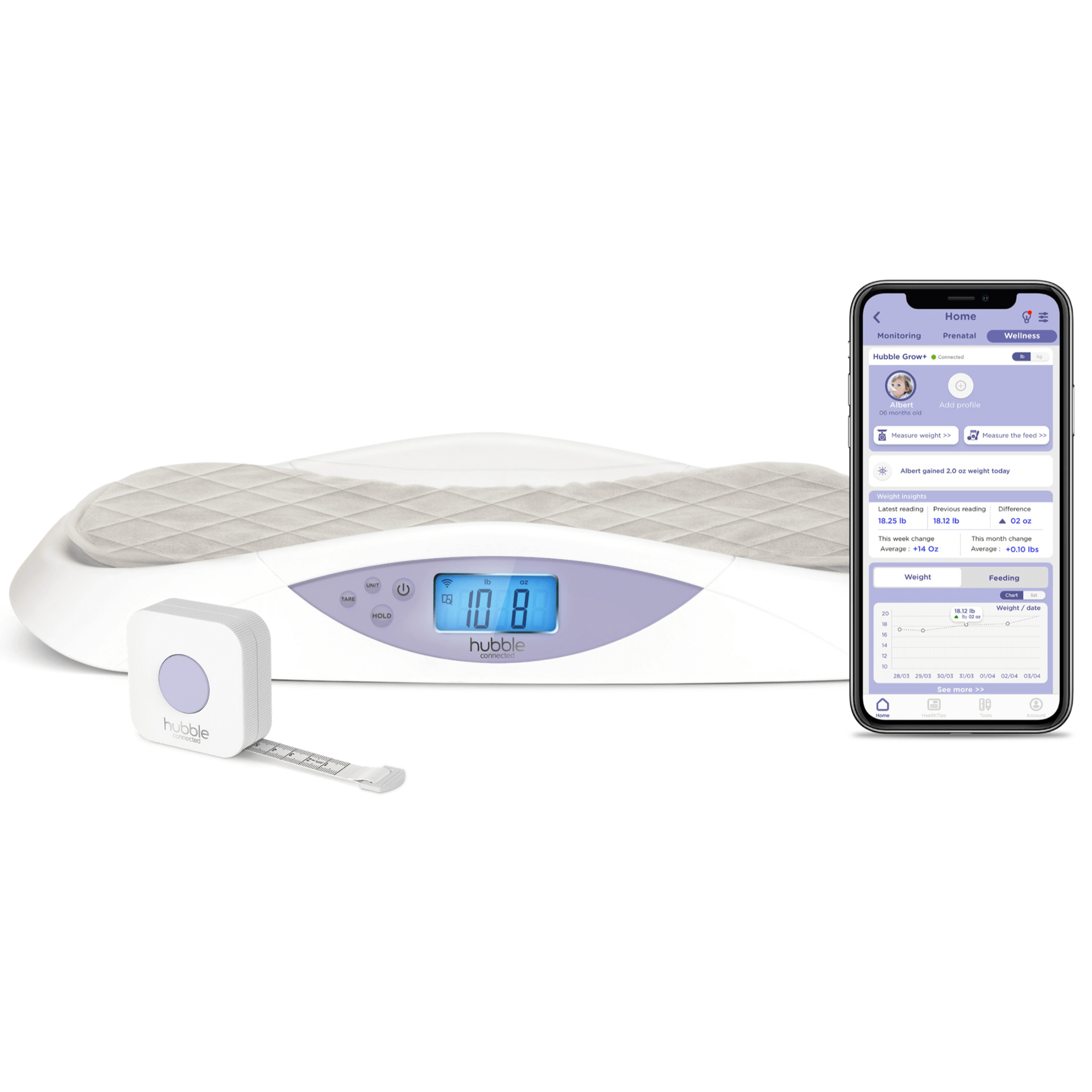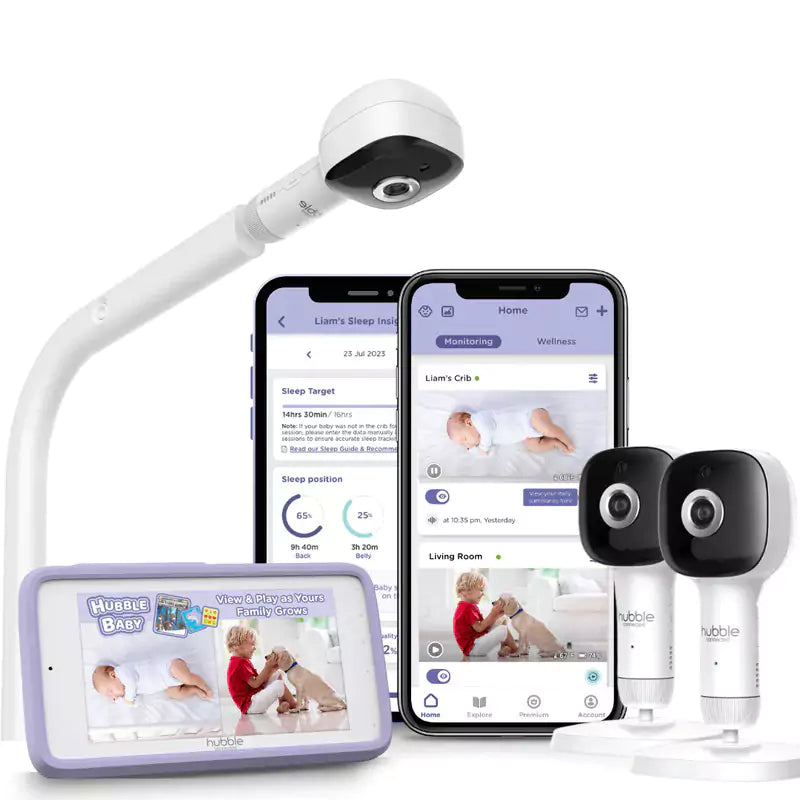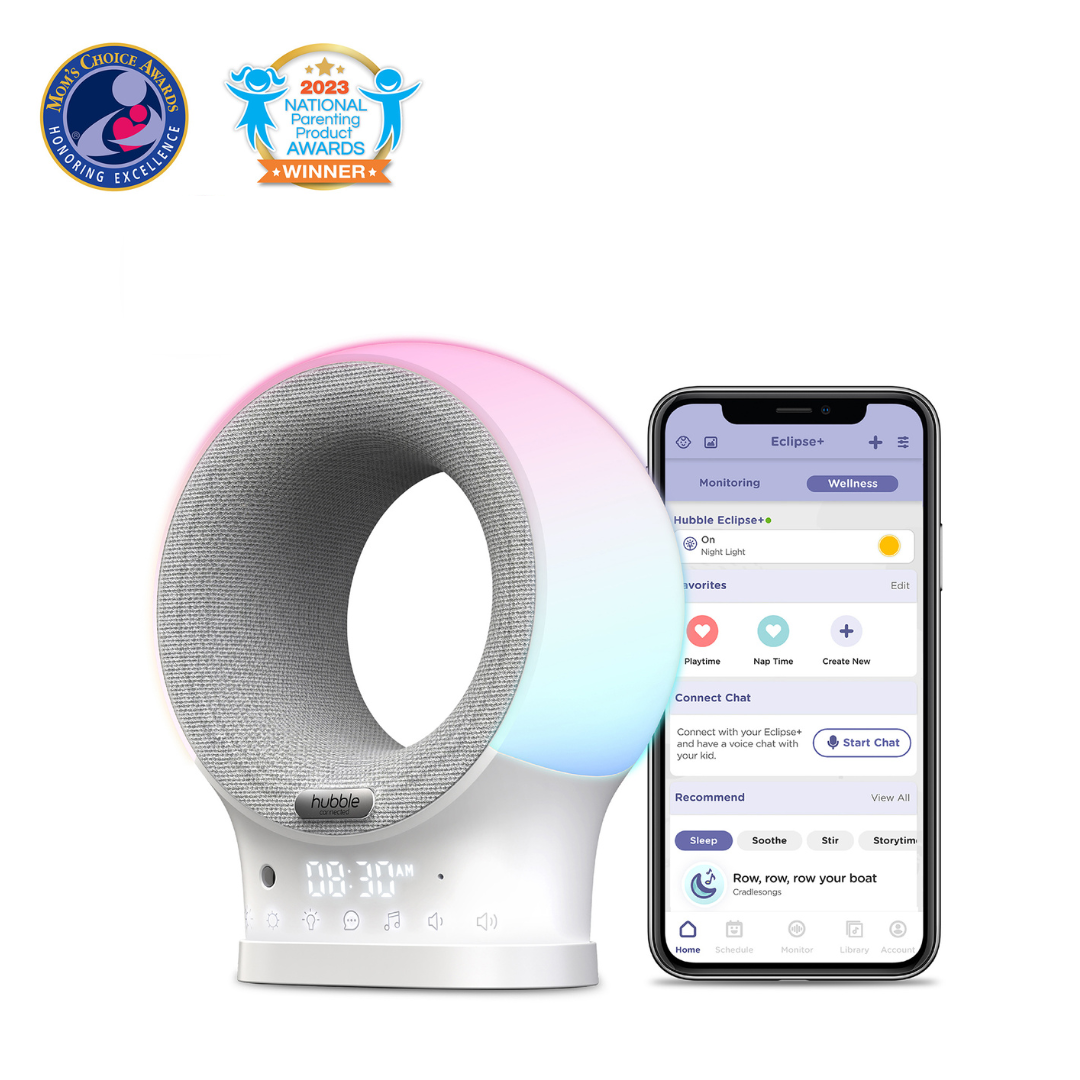Baby Month 1 Newborn Guide
Exciting Month 1 Baby Milestones to Celebrate
The arrival of your newborn marks a time of celebration, excitement, and perhaps even a little bit of nervousness for first-time parents.
Whether you’re a veteran parent who needs a refresher, or a new parent needing a ‘heads up’ on what to expect, this guide is for you.
We cover every magical moment of your baby’s first month, from their development to health, milestones, and even a bit of advice on how to cope and manage as a new parent.
Month 1: Your baby's development
Focus on the Fundamentals
At this stage, not much matters except having a clean diaper, getting quality (frequent) sleep, feedings, and of course, lots and lots of hugs and kisses. It can be easy to feel overwhelmed as a new mother, but we promise, this stage is simpler than it seems.
Learn More: Is my baby sleeping too much?
Perfect to You But Not Quite Yet
Despite literally every movie where newborns emerge looking like a picture-perfect angel, that’s not quite how real life works. Baby’s often need developmental time for their features to fill out and transform into the little angel you might have been expecting. Your baby is beautiful no matter what, but if they have a bit of a flattened nose or cone-shaped head from the pressure of squeezing through the birth canal, don’t fret. This will resolve itself in due time.
Reflexes of a (baby) Ninja
As a new mother, your parenting instincts might take a bit to kick in, but your baby has you covered. They are born with certain innate protective reflexes that make sure she/he gets the care they need.
Examples Include:
- Rooting reflex (aids in locating nipples for feeding)
- Sucking reflex
- Palmar reflex (finger grip)
- Moro reflex (jumpy reaction when startled)
Newborn Sensory Overload
Vision: Eyes are often swollen from delivery. Their range of vision is between 8-12” from their face (so don’t hold things too close or too far)
Hearing: Your child will be familiar with sounds from the womb and your voice.
Taste: Highly developed and able to clearly discern between bitter and sweet.
Smell: Your baby will quickly recognize your scent after birth
Touch: One of the most developed senses, your child will yearn for cuddling and the soft touch of your face.
Curled Up Body
Your baby will be familiar and comfortable in the same position they were in when in the womb; a curled-up bundle of joy with legs and arms tucked in close to their body.
Sex Organs
It is common for the labia on girls and scrotum on boys to be slightly swollen after birth. This is due to an increase in hormone production and will wane over time. Both nipple (girl and boy) and vaginal discharge is possible but should resolve within a week or two.
Losing More Weight Than You
Don’t be shocked if your baby ends up dropping 5-10% of their body weight post-birth (and try not to be too jealous). This is natural and within a couple of weeks they’ll have regained and likely surpassed their birthweight altogether.
Don't be worried if you think your baby is using the bathroom a lot - learn about why your baby is gassy.
Sleep Patterns of Your Newborn
It is common for newborns to sleep between 14—17 hours per day…sometimes more. But don’t expect them to let you get a good night’s rest! This sleep is intermittent and usually results in them waking to feed or for a diaper change. Speaking of feedings, newborns generally need to eat every 2-3 hours.
See More: The Ferber Method
More Milk than a Dairy Cow
Newborns eat a LOT. Like a lot a lot. This is needed to fuel the rapid development and growth spurts their little body is undergoing. Expect your baby to eat between 8-14 times per 24-hour period.
If you’re worried about your little one getting enough to eat, you’re not alone. Given that your breasts don’t come with a built-in meter, here are a few clues to hone in on:
- Appropriate weight gain for their age
- Between 8-12 dirty diapers a day on average
If both of those are within reason, you can rest reasonably assured that they are getting enough food/nutrients (high five mom!). Of course, if you’re using a bottle with formula, you can measure ounces which makes things a fair bit easier.
Bowel Movements
As a new mom, you have no choice but to get comfy with poo. The good news, is that you can learn a lot from your baby’s bowel movements. Their first few diapers might be sticky and black-ish in color. Don’t panic, this is normal.
Usually, within 1-2 days this will transition to green(ish)-yellow stools. After that things will transition to a more regular pace, with around five or so diapers a day, and a color resembling brown, green or yellow.
Month 1: Your baby's health
Crying: Expect a lot of crying. This is normal and natural and doesn’t mean you’re doing anything wrong. Early on, this is how babies communicate. Although some babies less fussy than others, if your little bundle of joy doesn’t cry at all or infrequently, you may want to consider having them checked out by your family physician just to be on the safe side.
Related: Teaching Babies To Sleep
Caring for a Fussy Baby: Fussiness is normally a sign that your baby needs something. The big three usually work. Sleep/cuddling, feeding, or a diaper change.
Colic: Signs of colic often include crying, tightly closed or wide-open eyes, balled up fists, knees pulled up to their chest, gas with short bursts of held breath, and flailing limbs. Physicians typically diagnose colic if the baby has experienced 3 or more hours of continual crying, for 3 or more days a week, and lasting for a minimum of 3 weeks or longer.
Strategies suggested by the American Academy of Pediatrics include a change of diet, swaddling, incorporating white noise into their room, running a gentle fan over them, and holding them.
Umbilical Cord Healing: Out of the womb, your baby’s umbilical cord resembles a shriveled-up stump covering what will be your baby’s cute little belly button. Don’t worry, this will naturally fall off within the first few weeks. But until it does, be sure to keep the area dry and clean. In the case of discharge or odor, contact your family care doctor to make sure there isn’t an infection brewing.
Umbilical Hernia: Have you noticed your baby’s belly reveals strange looking bumps or budges when they cry or move into certain positions? These are known as umbilical hernias. But don’t worry, they are typically harmless and usually resolve on their own over the coming months.
Month 1: Baby milestones
The first month can be an exciting one for parents, with your baby hitting many milestones. Let's take a look at some of the biggest changes you can expect over the first 30-days.
Most Newborns Will Be Able to:
- Suckle
- Raise their little hands to their cute little face
- Focus on the faces of yourself and others
- Briefly lift their head (especially during supervised feeding time)
- Respond to loud noises
- Recognize and respond to familiar noises
- Recognize and respond to familiar smells
Some Newborns Will Be Able To:
- Start vocalizing in ways other than screams
- Raise their heads at a 45-degree angle when positioned on their tummy
- Smile and laugh in response to smiles and laughter
Month One of Your Newborn: the best is yet to come
Enjoy this special time in your child’s life…it’ll be gone in the blink of an eye, trust us. The good news is that you have a lifetime of memories and new milestones to look forward to.













Share: